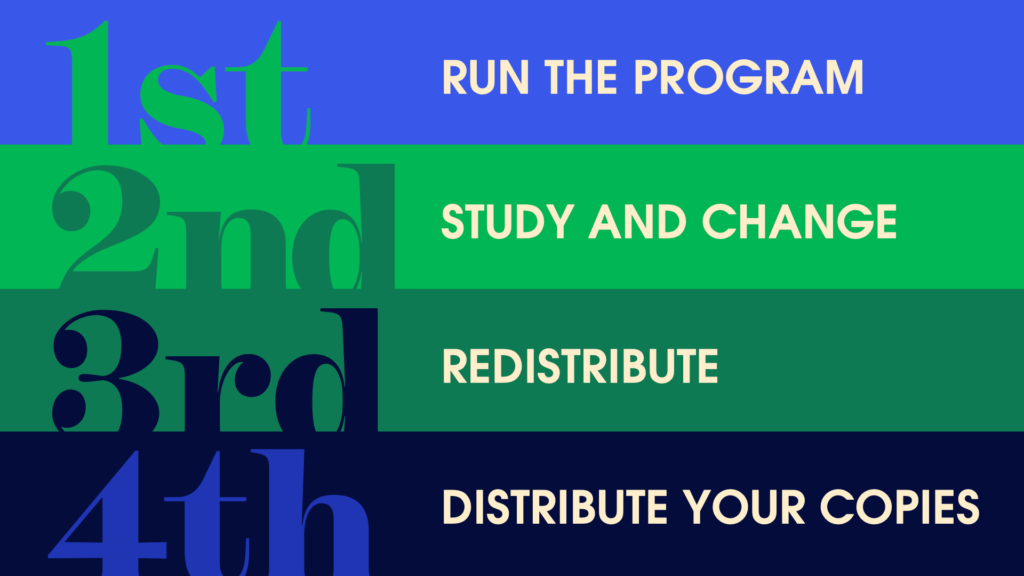WordPress belongs to all of us, but really we’re taking care of it for the next generation.”
Matt Mullenweg
A small audience of WordPress contributors, developers, and extenders gathered on December 15 for the annual State of the Word keynote from WordPress co-founder Matt Mullenweg. Those who could not join in person joined via livestream, of which I have watched since, or one of 33 watch parties held across 11 countries, with more than 500 RSVPs.

Executive Director, Josepha Haden Chomphosy, launched the event with a reminder of why so many of those gathered choose WordPress, the Four Freedoms of open source. As she noted, open source is an idea that can change our generation, and WordPress is one of the most consistent and impactful stewards of those freedoms on which it is based.
As with previous State of the Word events, Matt reflected on the year’s accomplishments, learnings, and aspirations as the project moves into 2023 and beyond. From Gutenberg concluding its second phase of site editing in preparation for phase three, Collaborative Workflows, to the restoration of meetups and global WordCamps, to the introduction of a new theme and plugin taxonomy, to contemplation on the potential of machine learning, WordPress is entering its 20th year continuing to define bleeding edge technology all thanks to the ecosystem’s vibrant community.
The one-hour multimedia presentation was followed by an interactive question and answer session where Matt fielded questions from the livestream and studio audience. All questions will be responded to in a follow-up post on Make.WordPress.org/project.
Discover everything that was covered by watching the official event recording and join the ongoing #StateOfTheWord conversation on Tumblr, Instagram, Facebook, and Linkedin. For another way that users can get involved, consider sharing your experience with WordPress in the 2022 WordPress Community Survey.
Referenced Resources
Some areas discussed where:
- WordPress on Tumblr
- Engineawesome.com using Gutenberg
- WordPress Community Summit 2023
- WP20.wordpress.net
- learn.WordPress.org
- Openverse
- Create Block Theme plugin
- Make.WordPress.org
- WordPress Playground
- Matt on Tumblr
- Distributed.blog
Q&A
In an effort for no questions to go unanswered, those submitted on Livestream and Twitter are listed below with answers from WordPress contributors.
A few teams are working hard to share and educate users about new features in the latest WordPress releases. The Training Team publishes tutorials to help ease adoption. Marketing highlights new #WordPress features across multiple social networks. @annezazu hosts regular Hallway Hangouts in Test. Your thoughts on additional adoption initiatives are welcome.
The project roadmap shows the big picture goals and upcoming releases, and @matveb shared some early thoughts about building a “multiplayer” experience, but there is no release date for this feature yet. As noted in the Q&A, some big questions need to be addressed before collaboration can be addressed. That said, some exciting plugins explore comments and other collaborative tools.
The new version of P2 requires WordPress.com hosting to power its more advanced feature set, so there is currently no self-hosted version available. You’re welcome to try the O2 plugin and the P2 Breathe theme, but please note that this plugin is not in active development.
Accessibility is top of mind while developing WordPress, and WordPress 6.1 has seen 40 accessibility improvements listed under milestones 13.1-14.1 in the Gutenberg GitHub repository, if you would like to follow along, with more expected in upcoming releases. As Matt mentioned in the Q&A session, there is an interest in slowing down the fast clip of Gutenberg development to allow for necessary improvements, like accessibility.
Every new release includes a variety of accessibility improvements. You can read about WordPress 6.0 Accessibility Improvements and expect more in 6.1. You can also get involved with this work by joining the #accessibility channel in Make Slack.
WordCamp US 2022 had a captioned Livestream available throughout the event(recordings also available). Community members in San Diego and at home kept the conversation going with #WCUS across social platforms, especially on Twitter. WordCamp organizers are committed to iterating and exploring how best to bring the experience to participants both in-person and online.
The Core Team is discussing open issues and blockers to the removal of the Beta label. You can follow along with the discussion on GitHub.
Navigation is a crucial part of the site editing experience and can cover a wide array of use cases, from simple “all pages” navigation to complex structures. Currently, the project is focused on ensuring the best experience possible for the most common use cases while still allowing extensibility. Once that experience is polished enough, the editor will be extended to allow more complex navigation structures such as mega menus.
Leave a Reply